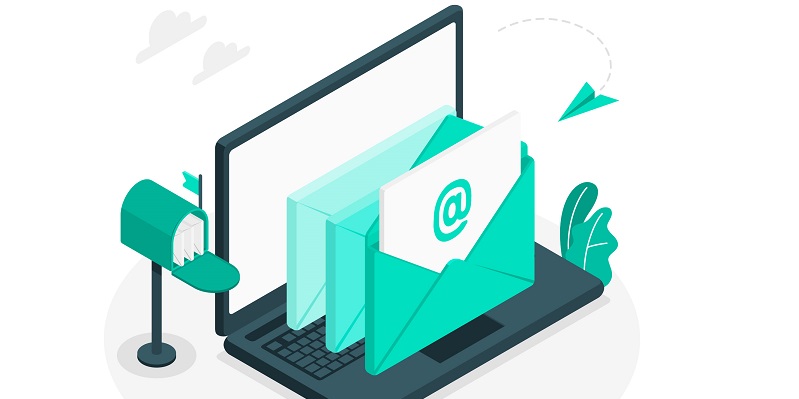In today’s digital landscape, where millions of messages compete for attention, email marketing emerges as a powerful tool that can deliver direct and meaningful communication. With its ability to foster deep engagement and drive conversion rates, it has become an indispensable strategy for businesses. This article explores the importance of email marketing, the benefits of personalized emails, the power of email automation, and how it outshines mass messaging tactics.
Email Delivery vs. Facebook Post Visibility
In the battle for attention, email emerges as the clear winner, with about 90% of emails successfully reaching the recipient’s inbox. In contrast, a mere 2% of your Facebook followers are likely to see any given post in their newsfeed. This stark contrast highlights the importance of leveraging email marketing for effective communication.
Emphasis on ROI
When considering return on investment (ROI), email marketing is a no-brainer. While there are costs associated with promoting campaigns across various channels, email service providers like Mailchimp or Constant Contact offer reliable monthly costs. These fees are usually lower than what you would spend on advertising with large platforms like Facebook and Google.
Varied Costs in Promoting Campaigns Across Channels
It’s worth noting that the cost of promoting campaigns can vary widely, especially in competitive industries with high-demand keywords. However, email marketing provides a cost-effective alternative that allows brands to connect with their audience more efficiently.
Benefits of Personalized Emails
Personalization is key in capturing the attention of recipients. According to a study by Experian, personalized emails have a 29% higher open rate and a 41% higher click-through rate compared to non-personalized emails. This data emphasizes the need for tailored content that resonates with individual subscribers. Effective segmentation allows you to target specific groups within your mailing list, tailoring content to match their interests, preferences, or demographics. By delivering personalized content at a more focused level, open rates increase, click-through rates improve, and unsubscribe rates decline. Segmentation is a powerful tool that helps build better relationships and engagement with your audience.
Increased Open Rates, Click-through Rates and Reduced Unsubscribe Rates
Personalization and segmentation result in tangible improvements in email marketing metrics. By delivering content that connects with individual subscribers, open rates rise, increasing the likelihood of engagement. Likewise, click-through rates soar when recipients receive highly relevant and personalized content. Consequently, by sending tailored emails, the risk of losing subscribers decreases, leading to sustained growth and improved ROI.
The Power of Email Automation
Time is a precious resource, and addressing each subscriber manually can be challenging. This is where email automation comes in. By setting up automated email campaigns, businesses can streamline their marketing efforts and ensure timely and relevant communication with subscribers.
Setting up an Effective Welcome series for new subscribers
A welcome series is a vital component of email automation. Once set up, it runs every time a new person joins your list, creating a solid foundation for a lasting relationship. By delivering a series of well-crafted and personalized emails, brands can engage new subscribers, introduce their products or services, and build trust from the very beginning. Examples of email automation include abandoned cart series, which reminds customers of items left behind, event registration series that guides participants through the registration process, and re-engagement series aimed at revitalizing inactive subscribers. In addition to the welcome series, email automation provides numerous opportunities to nurture relationships and drive conversions. It empowers brands to deliver relevant content and timely reminders, thereby increasing the chances of conversion.
Email Marketing’s Advantage Over Mass Messaging
Unlike mass messages that often get lost in the noise, email marketing enables direct and meaningful communication between brands and subscribers. With personalized subject lines and tailored content, emails can be crafted to resonate deeply with recipients, fostering a connection that stands out in an overcrowded digital space.
Standout Conversion rates in a Competitive Marketing Landscape
Email marketing’s sustained success lies in its ability to deliver some of the best conversion rates in a highly competitive marketing landscape. By leveraging personalization, segmentation, and automation, brands can optimize their email campaigns to generate higher engagement, drive sales, and build long-lasting customer relationships.
Email’s Ability to Foster Authentic Relationships From the Start
Building trust and fostering meaningful relationships from the outset is crucial in today’s marketing arena. With a well-crafted welcome series and personalized automation, email marketing provides a unique opportunity to nurture authentic relationships with subscribers. By consistently delivering value and relevant content, brands can turn prospects into loyal customers, driving business growth.
Email marketing has proven its worth as a powerful tool for businesses to connect with their audience, drive engagement, and boost ROI. With its personalized approach, segmentation capabilities, and the automation of campaigns, email marketing proves superior to mass messaging tactics. By taking advantage of email’s direct and meaningful communication, businesses can foster authentic relationships and maximize their conversion rates. It’s time to unlock the full potential of email marketing and propel your business forward.

